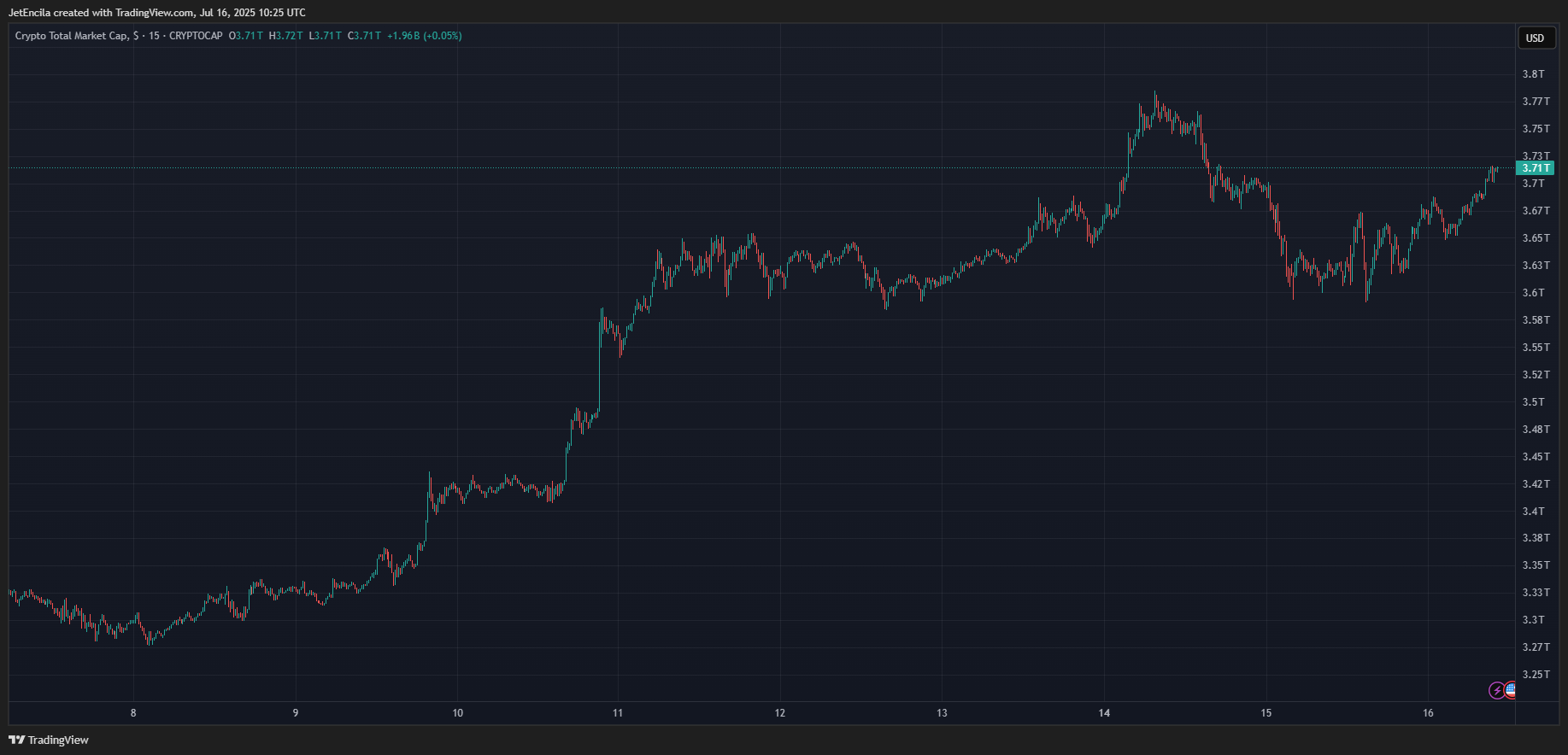Amidst the grand halls of the Capitol, where the echoes of past debates still linger, the House Republicans found themselves short of the divine inspiration needed to advance the GENIUS Act and a series of crypto bills. The motion, a mere whisper of progress, was lost in the cacophony of 196 against 222 votes. Thus, the ambitious plan to craft the first federal rulebook for stablecoins, alongside a related crypto clarity proposal, was left to wither, entangled in the annual defense spending bill.
As the news spread, the markets, ever the sensitive creatures, reacted with a twitch. Shares of Circle, Coinbase, and MARA Holdings each took a slight dip, a minor tremor in the vast ocean of finance.
Deep Rift Among Republicans
According to the roll call, more than a dozen Republicans, in a moment of rare solidarity with their Democratic counterparts, opposed the rule. Some lawmakers, feeling the sting of exclusion, voiced their grievances, claiming they were left in the dark regarding amendments.
I just voted NO on the Rule for the GENIUS Act because it does not include a ban on Central Bank Digital Currency and because Speaker Johnson did not allow us to submit amendments to the GENIUS Act.
Americans do not want a government-controlled Central Bank Digital Currency.…
— Rep. Marjorie Taylor Greene (@RepMTG) July 15, 2025
Others, with a fire in their eyes, demanded a firmer stance against central bank digital currencies. Representative Marjorie Taylor Greene, never one to mince words, took to X to express her discontent. She could not support a bill that failed to ban CBDCs and criticized Speaker Mike Johnson for stifling debate. 📢🔥
Sizable Senate Approval Meets House Pushback
Reports from the Senate, a chamber often seen as the more dignified of the two, revealed that the GENIUS Act had already passed with a resounding 68–30 vote on June 17, 2025. Senators from both parties, in a rare moment of bipartisanship, saw it as a means to bring stablecoins under US oversight.
However, House conservatives, ever the thorn in the side of progress, argued that the measure should include language to prevent the Federal Reserve from issuing its own digital currency. This internal conflict left leadership scrambling, like a ship caught in a storm, to gather enough votes to move forward.

Bundling Sparks Backlash
House leaders, in a strategic move, attempted to bundle the crypto measures with the defense appropriations bill. They hoped that by mixing a high-profile spending bill with the GENIUS Act, the process would be as smooth as silk. 🧵💰

Instead, critics on both sides cried foul. Defense hawks, ever protective of their funding, demanded a standalone debate. Crypto hardliners, with their eyes set on more changes, pressed their case. The package, thus, never made it to the floor, a victim of its own ambition.
Pro-Crypto Stance
Meanwhile, industry groups, with their deep pockets and sharp elbows, have spent at least $245 million in the 2024 election cycle to push pro-crypto policies. Fairshake, a crypto political action committee, still holds $141 million in cash, ready to wield its influence in the 2026 midterms.
Treasury Secretary Scott Bessent, with the foresight of a seasoned economist, has suggested that US stablecoins could grow to more than $2 trillion if a federal framework is established. And US President Donald Trump’s January executive order, a bold stroke of the pen, called for a CBDC ban in all federal agencies. These high stakes, a testament to the industry’s potential, underscore the urgency for clear rules and regulations. 📜💼
Read More
- Silver Rate Forecast
- Gold Rate Forecast
- Bored Rich Men and Fickle Fortunes: Bitcoin’s Latest Dance with Destiny (and Whales)
- Unlocking the Secrets of Token Launches: A Hilarious Journey into Crypto Madness!
- El Salvador’s AI Revolution: Nvidia Chips Power National Lab
- Brent Oil Forecast
- Solana Whales: Gulag or Golden Toilet? 🚽💎
- Unmasking the Whale: Ethereum’s Shocking, Witty Crypto Power Move Revealed 😎
- Crypto Drama Unfolds: Bitcoin’s Squeeze, Shiba’s Snooze & Dogecoin’s Slow Fade
- Ethereum’s $5K Gambit: A Cup, Handle, and Institutional Shenanigans!
2025-07-17 01:54